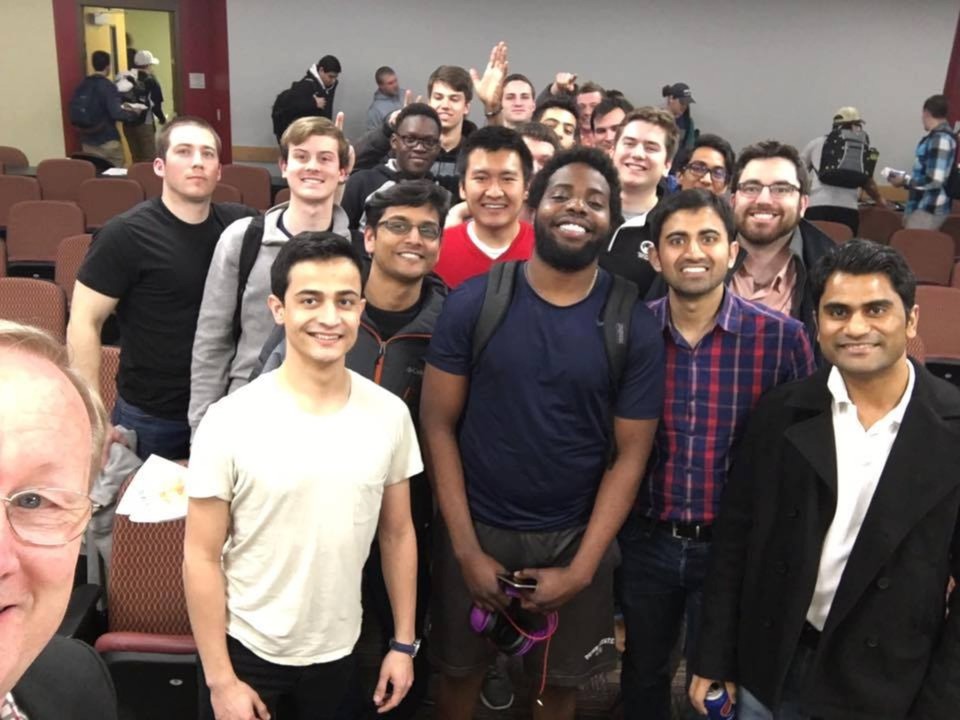
Swimming upstream in a down market: tips for new petroleum engineers
“So the hours are pretty good then?' he resumed.The Vogon stared down at him as sluggish thoughts moiled around in the murky depths. Yeah,' he said, 'but now you come to mention it, most of the actual minutes are pretty lousy.” ― Douglas Adams, The Hitchhiker's Guide to the Galaxy
Trying to navigate today’s uncertain oil and gas market cycles is like swimming upstream against a strong current. In a lower-for-longer – and maybe forever – cost-constrained environment, our old habits of focusing on increasing production and forging forward into new geographies and reservoirs won’t sustain us. After over 100 years and despite great advancements in technology, the average oil recovery rate today is only 35%. And, average downtime is 13%.
At the heart of what will determine our future and differentiate the winners from the also-rans going forward is a fundamental change, not in the work itself, but in the way we work. Digital will define our industry and the way we work from this point on.
Digital transformation has taken hold in most industries. Industrial activity is changing rapidly. The internet of things (IoT) is a reality. Modern digital industrial tools make high-frequency measurements and computations on site and in the cloud. Applications like GE’s PREDIX and others are changing how we design, build and operate factories, equipment and homes.
Petroleum engineering and the oil and gas business lag in these applications. Today, the data that is collected from upstream operations is typically used only for issue detection and control, not for optimizing the performance of the operation and the assets.
Our accomplishments so far for “intelligent wells” and “smart fields” have not fully captured potential savings and have primarily been applied where improving run time or avoiding interventions will justify costs. Big data analytics have been applied to a few problems, but rarely with the level of sophistication that is now available. In fact, 97% of captured data is siloed and never used.
Digital transformation is not a nice-to-have for oil and gas companies today. It is a business imperative.
So, what does this tell new petroleum engineers and for those studying engineering? It tells us that that today’s and tomorrow’s petroleum engineers need to be as knowledgeable and focused on digital as they are on the conventional basics of the discipline. It also tells us that education for engineers, and particularly for petroleum engineers, needs to be interdisciplinary.
As a student, I never heard of “supply chain” issues and only broadly of project management. Interdisciplinary petroleum engineering education should expose students early and often to these concepts in a meaningful way. Similarly, petroleum engineers need to have more than a passing acquaintance with nanomaterials and materials science broadly, fiber optics, big data analytics and digital industrial approaches to the modern oil industry.
It is estimated that 50% of the current work force will have retired by 2025. New job roles are emerging, digital mechanical jobs that ask engineers to blend traditional engineering training with mastery of the latest computing techniques.
Companies as well as universities have a key role to play in preparing and retraining—or retraining—their engineers. Robotics, high-performance computing and artificial intelligence are extending the range of tasks machines can do better than humans. But there remain huge opportunities in spaces where humans excel: creativity, entrepreneurship and interpersonal capabilities. Employers need to nurture these capabilities in their engineers, just as they do product development, research, and technical problem solving. Technology and service providers need to work together, think differently, and take action to implement digitally-enabled operational excellence. A focus on connectivity, visibility, insights and proactive decision making across an enterprise is critical. We are past the waiting game. Only when information is shared and accessible in the right ways across enterprise and ecosystem, will the digital transformation needed to sustain our industry flourish.
Senior Project Manager | Petroleum Engineer at Baker Hughes, a GE Company
6yVery interesting article shedding some light on future scenarios. What makes me think is that "It is estimated that 50% of the current work force will have retired by 2025. New job roles are emerging, digital mechanical jobs that ask engineers to blend traditional engineering training with mastery of the latest computing techniques. " This situation calls for a more digital focus in our professional life.
business tax and customs at HM Revenue & Customs
6ywell it is a challenge I am dealing with, but I have started my journey with project management and data scientist
Regional Director for Latin America at Water For People - Central & South America
6yJose Manuel Lujan Soria
Upstream Deepwater Digital Transformation Manager & Business Opportunity Manager Louisiana Coast
6yNathan, fully agree. Our industry sits atop a mountain of data. Mining that data will provide us with the next big gushers. Grads, and the rest of us need to be ready to engage in the clearly un-sexy job of rolling up sleeves and digging into this mess. Until we create order and treat data as data (not as PPT, PDF and XLS) and manage in a single enterprise warehouse, all the programming and AI and Machine Learning won’t get us anywhere. We need Data Managers and System Engineers first. Then comes the fun Analytics and predictive and automated workflows.
Head of HSE Culture, Communication & Training @ Saipem ☆ General Secretary @ Leadership in Health & Safety Foundation ☆
6yAntonio Careddu Andrea Boscacci